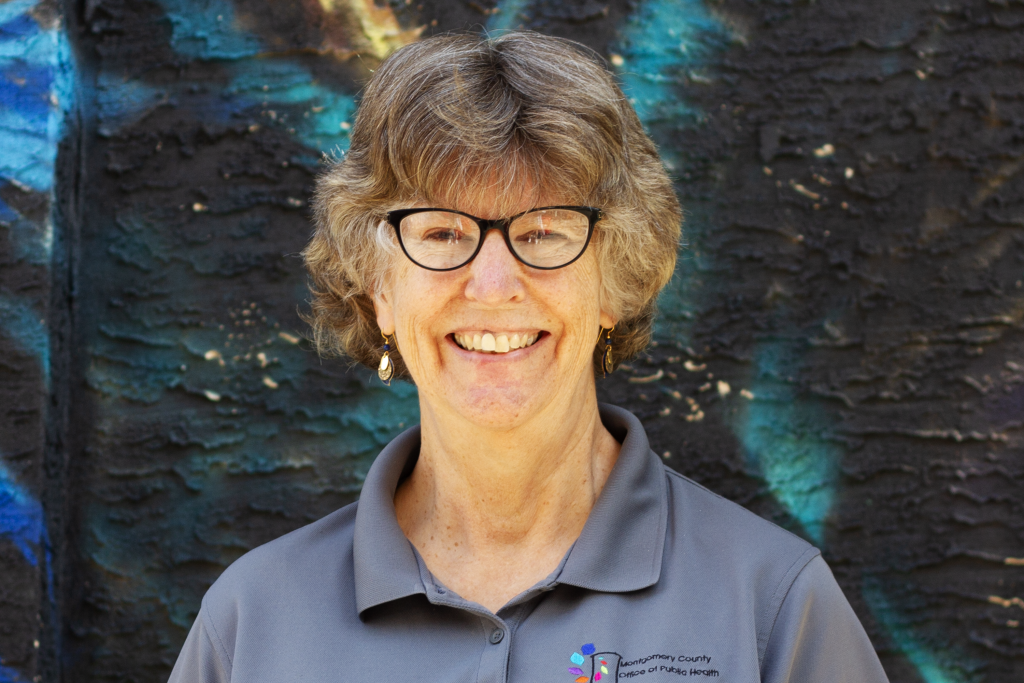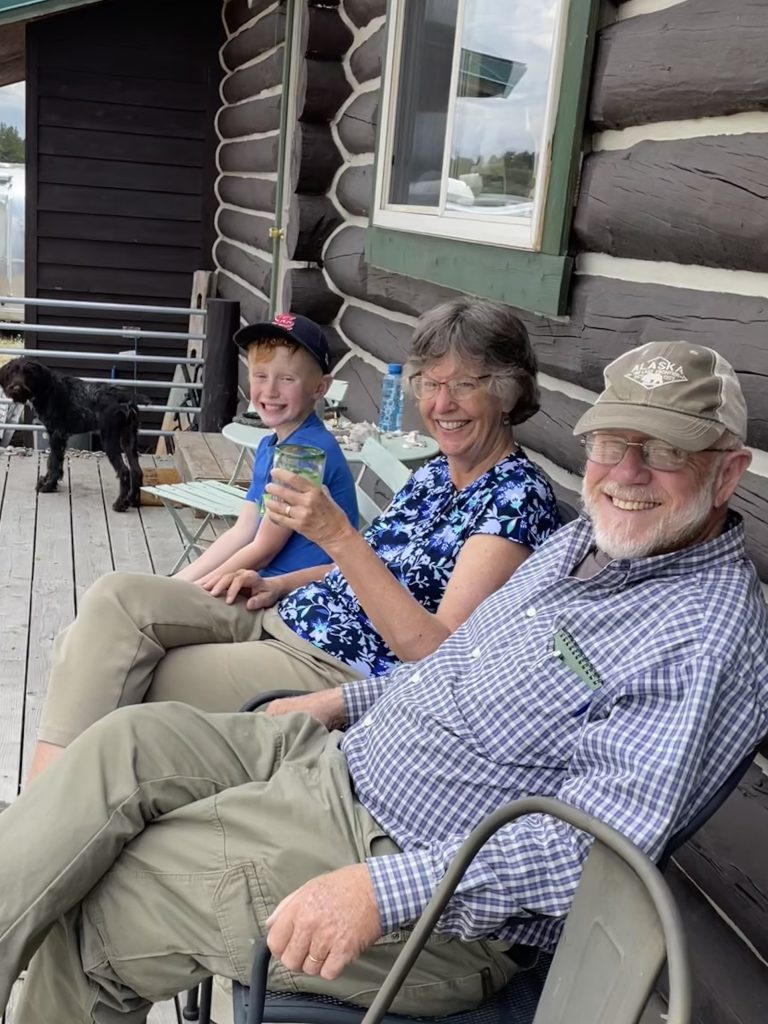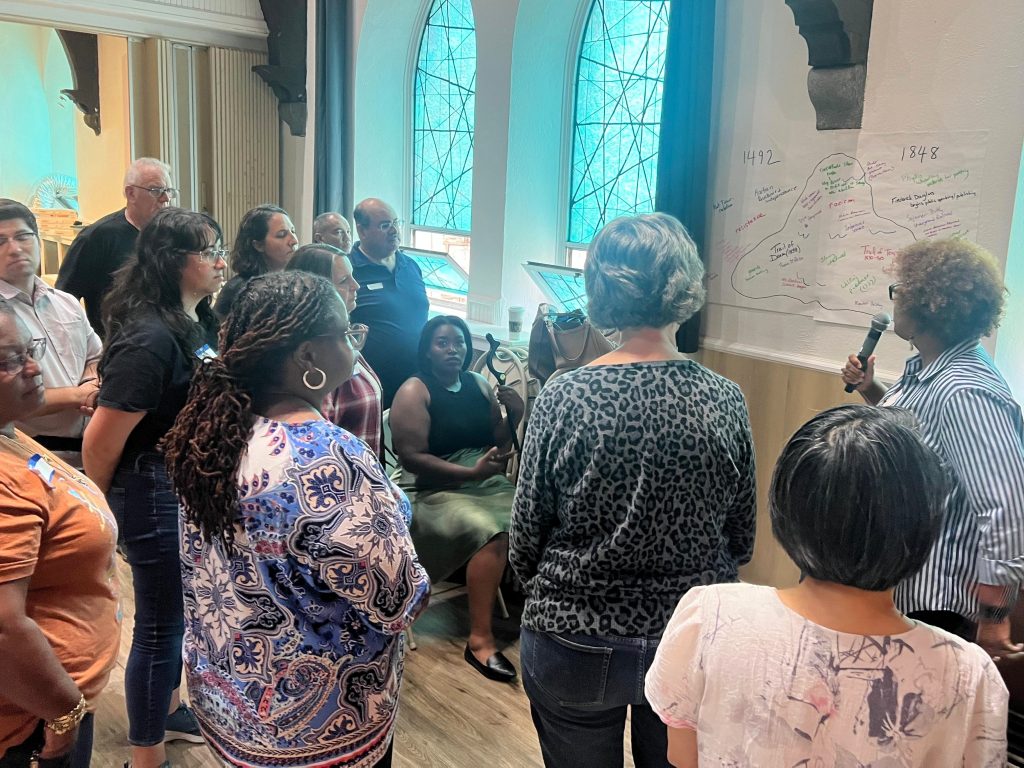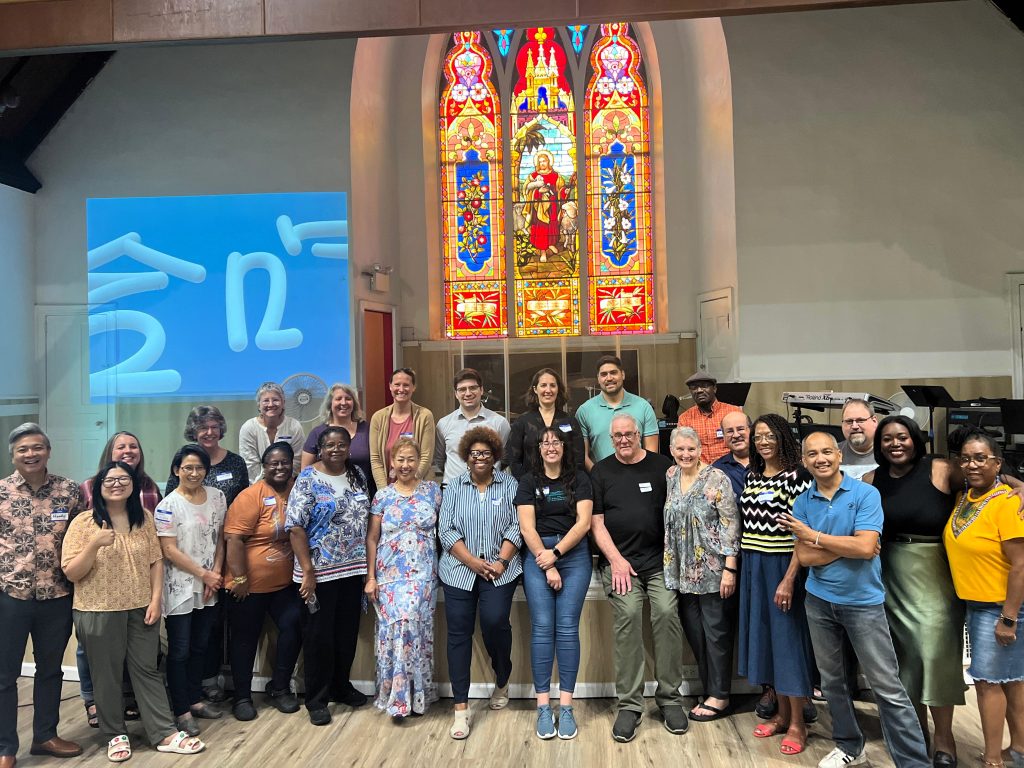by Jennifer Svetlik

Janet Panning has dedicated her life to serving both the church and the broader community through a deep commitment to faith, justice, and leadership. In March 2025, the Mosaic Conference Board voted to approve Panning as the next Assistant Moderator of Mosaic Conference. Her term will begin on January 1, 2026, when Roy Williams of North Tampa (FL) Christian Fellowship will become Moderator.
Reflecting on this new calling, Panning shared, “I feel honored and humbled to be asked to serve in this role. I feel that Mosaic Conference is able to celebrate the faith of our Mennonite ancestors while learning from the example of our newcomer congregations. Together we are called to see and to serve the vulnerable among us.”
The Assistant Moderator serves as vice chair of the Conference Board and Chair of the Nominating Committee. Additionally, the Assistant Moderator chairs Board and Executive Committee meetings in the absence of the Moderator and fulfils other duties as assigned. The position is for a three-year term, with the expectation that the Assistant Moderator will then serve as Moderator, pending approval by the Conference Board. Panning’s appointment will be presented for affirmation by the Delegate Assembly in November.

Panning brings a lifetime of leadership and service experience to this new role. Raised in Cincinnati, Ohio, she became a Christian at 14 through a Young Life Club and then grew increasingly involved in her Episcopalian church. Her journey with the Mennonite church began at Michigan State University, where she discovered a brochure for the InterMenno program, sparking a life-changing year of service in the Netherlands.
Together with her husband Steve, Janet served with Mennonite Central Committee for 12 years in Jamaica and Kentucky before settling in Pennsylvania. Since 1987, the Pannings have been part of Plains Mennonite Church (Hatfield, PA), becoming members in 2004. Janet is deeply involved in the life of the congregation—she currently serves as Chair of the Elders and contributes through children’s music, choir, playing piano during worship, serving as a host family, and participating in a small group.
Panning has also served extensively at the Conference level. She has been a member of the Ministerial Committee for many years, with Franconia and Mosaic Conference, and has served as Chair of the committee since 2019.
Panning retired in 2024 from the Montgomery County (PA) Office of Public Health. She continues her advocacy and health work as a consultant with Children First’s PA Lead-Free Promise Project. Earlier in her career, she spent 18 years working in refugee resettlement, on a staff team helping thousands of individuals from Liberia, Sierra Leone, South Sudan, Uzbekistan, Myanmar, Syria, Iraq, the DRC, Ethiopia, and beyond find new homes and employment in the region.
When asked about her hopes for joining the Executive Committee of the Board, Panning responded, “That together we can find the courage to follow Jesus in our broken and beautiful world. My hope is that we can discern together what the reconciliation of Jesus means in our families, our neighborhoods, our church communities, our countries and our world, and that together we can have the courage to follow Jesus in challenging times.”
Outside of her professional and church commitments, Panning enjoys biking with her husband, reading, and spending time with their three grandsons. A recent highlight was an Amtrak journey across the country, where she particularly cherished the hours spent following the Colorado River through the Rocky Mountains.
Mosaic Conference requires all Board members to be 18 years or older and active members of a Mosaic congregation. While no other criteria are formally outlined in the bylaws, desired qualities include a commitment to following Jesus, spiritual discernment, active involvement in church life, and experience in leadership, with an emphasis on representing the geographic and cultural diversity of the Conference.
With her decades of dedication, cross-cultural experience, and spiritual depth, Panning will bring a strong foundation of leadership and compassion to the role of Assistant Moderator.

Jennifer Svetlik
Jennifer is Director of Community Engagement & Editor for Mosaic. She grew up near Houston, TX and spent a decade living in intentional community in Washington DC, before moving to Lansdale, PA. She serves as Children’s Faith Formation Director at Salford Mennonite (Harleysville, PA).
Mosaic values two-way communication and encourages our constituents to respond with feedback, questions, or encouragement. To share your thoughts or send a message to the author(s), contact us at communication@mosaicmennonites.org.










